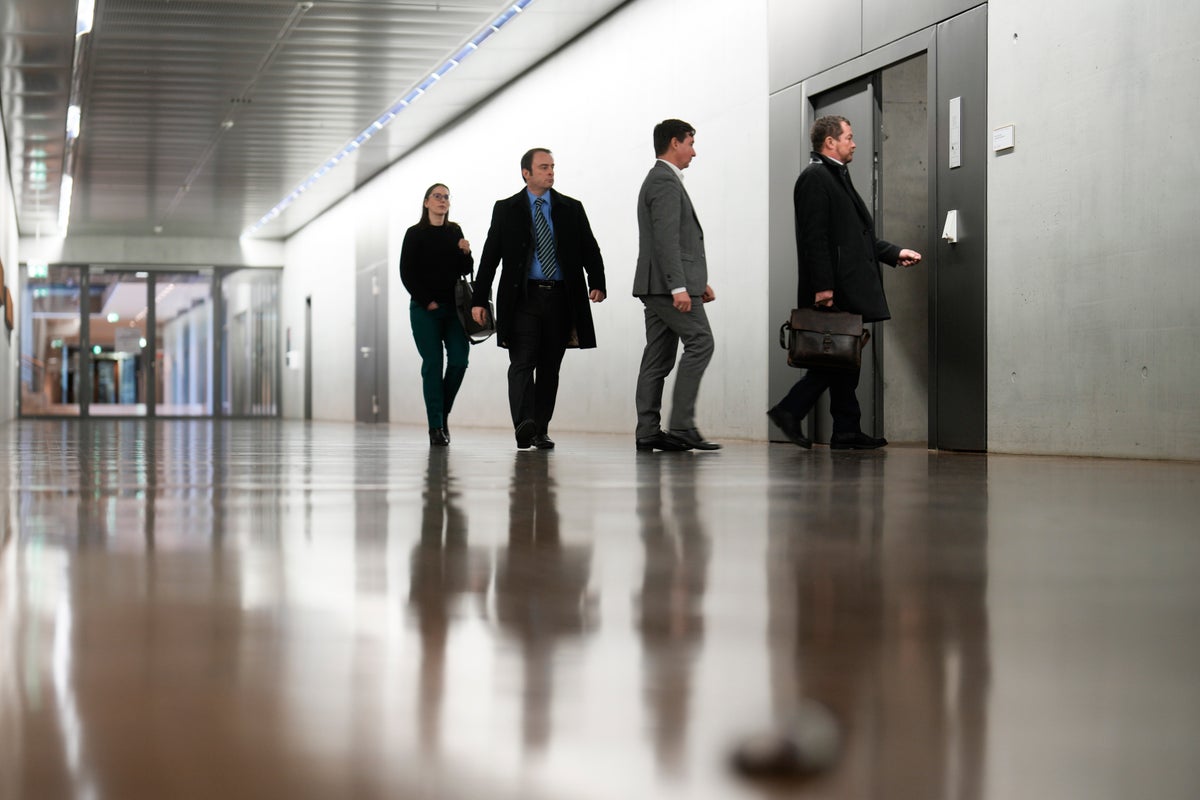
German lawmakers said Monday they are digging deeper into an alleged coup plot uncovered last week, when police detained dozens of people linked to the far-right Reich Citizens movement.
Prosecutors said the 24 Germans and one Russian detained last Wednesday are suspected of being members of, or of supporting, a “terrorist organization" that planned to topple the government.
The suspects planned to set up 280 armed units across Germany that would have been tasked with “arresting and executing” people after a coup, German news agency dpa reported, citing a briefing given to lawmakers.
“There were obviously plans that, based on the scale of their intentions against our liberal democracy, are shocking,” said Konstantin von Notz, a Green party lawmaker.
“Now the evidence that has been collected needs to be carefully reviewed,” he said following a meeting with federal prosecutors. “But what is known today, what has already been presented today in the legal affairs committee by the attorney general, these are significant events that are extremely disturbing.”
Prosecutors briefed lawmakers about seizing a large number of “non-disclosure agreements” by people the alleged plotters had tried to recruit, according to the dpa agency
Left party lawmaker Clara Buenger told dpa that investigators also reported finding more than 400,000 euros ($422,000) in cash, gold and silver coins, satellite telephones and even evidence of a safe full of gold bars.
Speaking to reporters after a closed-door meeting of Parliament's intelligence oversight committee, von Notz said “many questions were answered, many remain open.”
He and other lawmakers drew parallels to the storming of the U.S. Capitol building on Jan. 6, 2021. Prosecutors say some of those detained last week had plans to enter the German parliament, or Bundestag, with weapons.
“We have seen time and again in recent years that parliament buildings are a welcome target for far-right extremists, conspiracy theories and their friends,” said Konstantin Kuhle, a member of the Free Democratic Party.
“The Bundestag is the most visited parliament in the world,” he said. “We as deputies can't do our job if we have to isolate ourselves.”
Kuhle warned that far-right extremists were increasingly forging networks that reach deep into what he described as “the middle of society," including soldiers and police officers.
One of those detained was Birgit Malsack-Winkemann, a judge and former lawmaker for the far-right Alternative for Germany party, or AfD.
Germany's top security official, Interior Minister Nancy Faeser, has suggested tightening the rules for civil servants suspected of supporting antigovernment movements such as the Reich Citizens.
Uli Groetsch, a member of Faeser's Social Democratic Party, said the alleged coup plans also showed the need to scrutinize AfD more closely.
“We cannot accept that there is a party in this country that, as it appears now, is directly the source of a putsch attempt,” he said.







